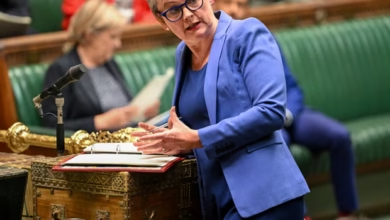A day of celebration — and recognition of female caregivers’ contributions

From the very beginning of civilization, women have occupied an important place in society. Statistics show that most caregivers are female — 65 percent alone in the US — and more than 80 percent care for a relative or friend who is 50 or older.
It is impossible to imagine a functioning society without women caring for the vulnerable and infirm, often in the most challenging circumstances, whether from leadership positions or the front line. We wouldn’t be where we are today without them.
On International Women’s Day, I encourage you all to consider the many contributions throughout history from the people we know about: Examples from the Prophet Muhammad’s courageous and educated female family members such as Khadija, a caregiver, and successful businesswoman, to his daughter, Fatimah, also a caregiver and health care provider, Aisha bint Abu Bakr, another caregiver and judge, to those such as Florence Nightingale, Mother Teresa — and the millions of other unsung heroes.
Today, the health care profession is changing with the introduction of new technologies. Artificial Intelligence and robotics will shape health care for many years to come and will support medical professionals rather than eliminate their jobs.
But to truly empower caregivers through new technological solutions, we must logically ensure they are fully involved at every stage of their development.
In the interests of inclusivity, women should be at the forefront of the process. Their involvement will also ensure that patients are better accounted for, as solutions will be designed to work for everyone, not only a few, and create health “caring” systems.
This year’s International Women’s Day theme is “DigitALL: Innovation and Technology for gender equality.” As the UN has highlighted, bringing women into technology results in more creative solutions and has more significant potential for innovations that meet women’s needs and promote gender equality.
The events of the beginning of the decade have revealed significant weaknesses in health care worldwide as caregivers came under immense pressure. We also stand on the cusp of a new industrial revolution. Let’s not waste the opportunity to get it right. Let’s do it together, side by side.
Dr. Maliha Hashmi is a prominent global health leader, a winner of the prestigious Forbes Health Leadership Award of 2022, and a recipient of the World Leaders Award. Hashmi is one of the Top Seven Most Talented Female Health Leaders of the MENA region and a C-level health care executive, public speaker and WEF Global Future Council Expert. She is also a V2O Delegate of the G20 and an author.
Disclaimer: Views expressed by writers in this section are their own and do not necessarily reflect Political Opinion point of view





